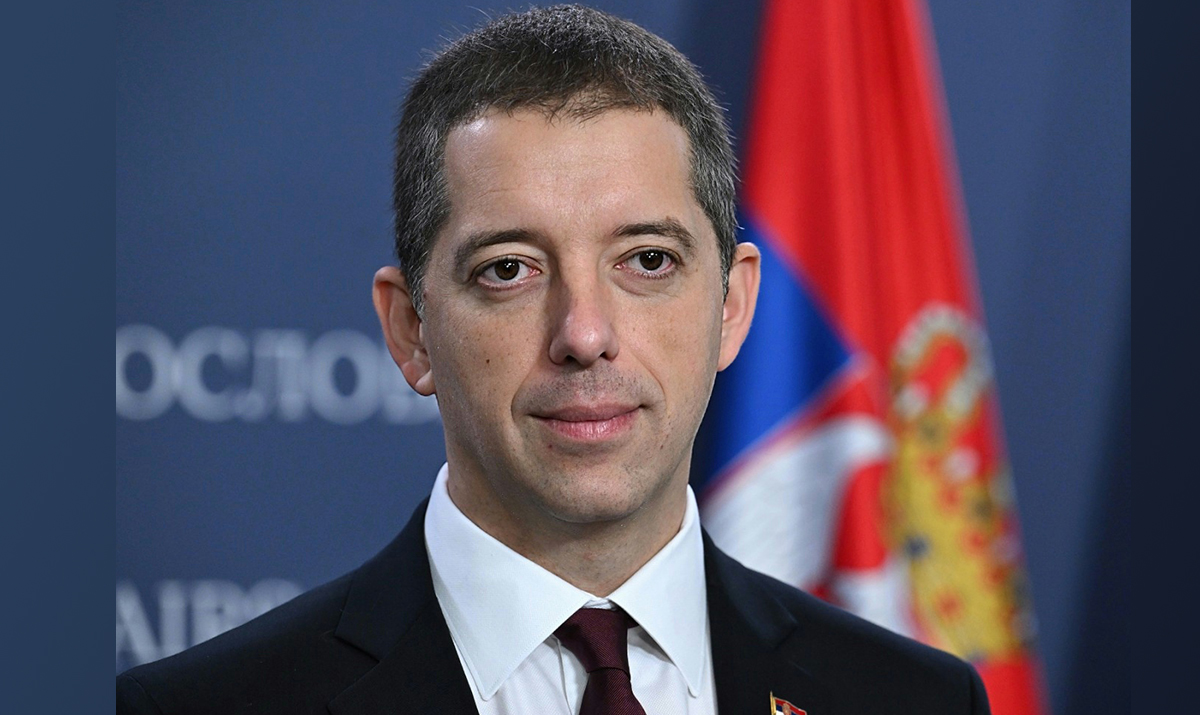
18 May Interview with Mr. Marko Đurić, Minister of Foreign Affairs, Republic of Serbia
Serbia and the US have long been strategic allies. What are the strengths today of Serbia-US relations?
One of the positive developments in European geopolitics is the revival of the strategic link between Serbia and the US. Our nations have established relations back in 1882 and were allies in both world wars. Yugoslavia, which was non-aligned during the Cold War period, maintained good relations with the US. After the difficult 1990s, we are now reestablishing our strategic partnership across all sectors. The US is Serbia’s top partner in services and economic exchange is now measured in billions.
Over the past decade, Serbia has more than doubled its economy while modernizing key industries. Last year, IT surpassed agriculture in GDP contribution for the first time in history. Leading U.S. companies — Microsoft, Google, NCR, Rivian and Philip Morris — have established operations and production, including R&D centers, making Serbia a regional hub. Serbia’s unique geopolitical position, global outreach and network of partnerships and friendships offers free access to both the European market and the Eurasian Economic Union. We are also the only European country with free trade agreements spanning China, Egypt, the UAE, Turkey and several African and Asian nations. This strategic advantage has drawn major global investments and companies from Europe, the US and beyond, resulting in Serbia capturing 65% of all FDI in Southeastern Europe in recent years.
As Serbia’s ambassador to the US, you oversaw the creation of the American-Serbian Business Council. How has this council impacted economic ties?
The newly established Serbian-American Business Council in Washington, D.C., unites major US investors in Serbia and the region. It actively advocates for stronger US-Serbia ties, recently urging senior officials to launch a strategic dialogue. The council also welcomed the September 2024 strategic partnership agreement on energy. We take pride in its membership, which includes leading US companies across high-tech and infrastructure sectors — key contributors to Serbia’s energy diversification and infrastructural development.
I recently had the chance to meet informally with the US Secretary of Commerce, Howard Lutnick. His vision for restoring US economic leadership aligns with Serbia’s goal of strengthening its regional role. Together, we can expand our presence beyond Southeastern Europe to Africa and Asia, where Serbia has strong ties. Serbia is rich in natural resources, holding 11% of the world’s lithium deposits — vital for various industries. We are committed to balancing economic growth with sustainability. In 2025, we aim for the highest growth rate in Europe, having already ranked among the top three fastest-growing economies last year. I invite USinvestors and visitors to experience Serbia firsthand. With visa-free entry and direct flights from New York and Chicago, Serbia is well-connected to the US and we hope to add a Miami-Belgrade route soon.
Few know that Serbian labor helped carve Mount Rushmore or that five US towns are named Belgrade after Serbia’s capital. Nikola Tesla, a key figure in 20th-century science, was of Serbian origin and the son of a Serbian Orthodox priest. Today, over a million people of Serbian origin and 137 active Serbian Orthodox parishes strengthen US-Serbia ties. With an 800-year history, the Serbian Church remains a pillar of the community, operating three dioceses across the United States.
How will Expo 2027 strengthen Serbia’s global brand reputation and what opportunities do you see for the international business community to support Expo-related initiatives?
Expo 2027 is a visionary initiative led by President Aleksandar Vučić and Finance Minister Siniša Mali, who championed Serbia’s bid to host the event. We are confident it will have a transformative impact on Belgrade, much like past Expos did for San Francisco, Paris and Dubai. Belgrade, the largest city between Vienna and Istanbul, is undergoing major infrastructure upgrades in preparation. Situated on the stunning Danube and Sava rivers, it is home to 2 million people and well worth visiting. We expect millions of tourists and a record number of participating nations. Our outreach spans the Caribbean, Pacific islands and Africa, hosting ministers and security advisors from 40 African nations recently. Expo 2027 will be a global hub for networking, economy, culture, business and sports. We are thrilled that the US has confirmed its participation with a major pavilion, showcasing its achievements and opportunities.
How has the Serbian Congressional Caucus in the US helped advance Serbia’s priorities in D.C.and what steps are being taken to further engage US lawmakers?
Serbia’s Congressional Caucus has more than doubled in recent years, reflecting growing interest among US lawmakers. This is driven by Serbia’s economic progress and the increased engagement of the Serbian-American community, which serves as a vital bridge between our nations. I want to recognize Congresswoman Claudia Tenney, co-chair of the Serbian Caucus, as well as Congressman Eric Swalwell and other bipartisan members of Congress. Despite differing political views on domestic issues, they share a commitment to strengthening US-Serbia cooperation and recognizing Serbia’s strategic potential as a reliable ally.
